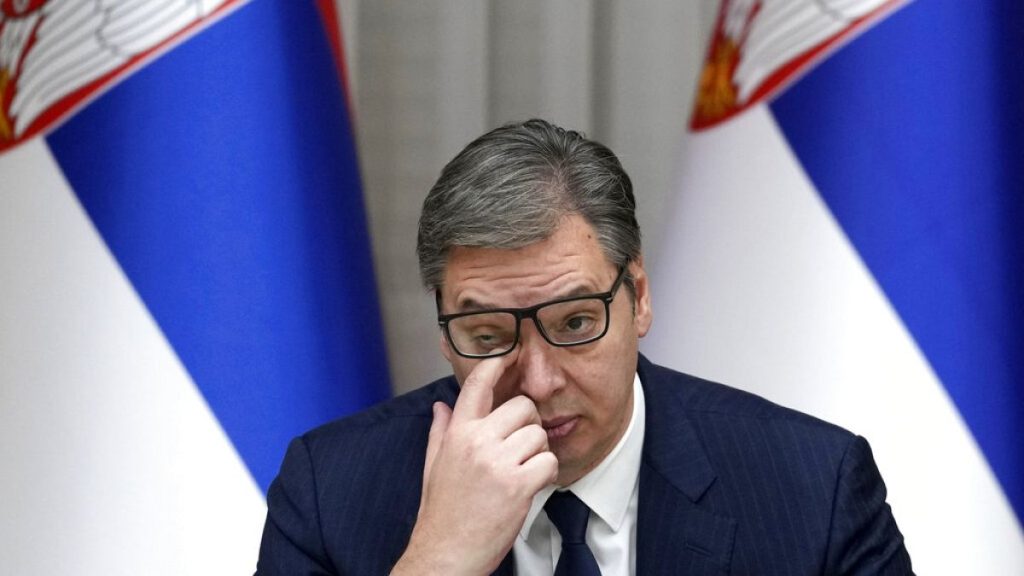Serbian President Aleksandar Vucic issued an apology on Wednesday for calling Slovenians “disgusting”, clarifying that he was specifically referring to their politicians. Vucic stated that his comments were a reaction to what he perceived as anti-Serbian policies and statements coming from Slovenia. Despite his controversial remarks, the Serbian leader emphasized that he holds the Slovenian people in high regard, citing personal connections and friendships in the country. Vucic’s apology aimed to clarify that his criticism was directed solely towards political figures in Slovenia, rather than the population as a whole.
The incident involving Vucic’s derogatory comments towards Slovenians highlights the strained relations between the two countries. The Serbian president’s criticism was driven by his perception of anti-Serbian sentiments and policies emanating from Slovenia, leading to a public apology aimed at diffusing tensions. Vucic’s clarification that his remarks were targeted at politicians, rather than the populace, reflects an attempt to salvage diplomatic relations and maintain a level of mutual respect between the nations. Despite the controversy, Vucic’s apology sought to present a more conciliatory tone and reaffirm his positive views of the Slovenian people.
Vucic’s apology underscores the delicate nature of international relations and the importance of diplomatic decorum in addressing conflicts between nations. The incident serves as a reminder of the potential repercussions of inflammatory rhetoric on diplomatic ties and the need for leaders to exercise restraint in their public statements. By admitting his mistake and expressing regret for his choice of words, Vucic sought to mitigate the damage caused by his initial comments and demonstrate a commitment to fostering goodwill between Serbia and Slovenia. The apology signifies a gesture of goodwill and an acknowledgment of the need for respectful dialogue in resolving disputes between countries.
The controversy surrounding Vucic’s comments also sheds light on the complexities of political discourse and the impact of inflammatory language on public perception. As a prominent political figure, Vucic’s words carry weight and can have far-reaching consequences, particularly in shaping attitudes towards other nations. The incident serves as a cautionary tale for leaders regarding the importance of measured communication and the potential backlash from making impulsive or offensive remarks in the public sphere. Vucic’s apology reflects a recognition of the need for responsible and respectful dialogue in fostering constructive relationships with neighboring countries.
In the broader context of regional relations in the Balkans, Vucic’s apology for his comments towards Slovenia underscores the ongoing challenges of historical tensions and territorial disputes in the region. The incident serves as a reminder of the deep-seated animosities and sensitivities that continue to influence interactions between countries in the Balkans. Vucic’s apology can be seen as a step towards de-escalating tensions and promoting a more cooperative approach to addressing differences and resolving conflicts in the region. By extending an apology, Vucic sought to signal a willingness to engage in dialogue and foster a more positive and constructive relationship with Slovenia and other neighboring countries.
Overall, Vucic’s apology for his remarks towards Slovenians reflects a recognition of the importance of respectful communication in international relations and a commitment to maintaining positive relations with neighboring countries. The incident underscores the need for leaders to exercise caution in their public statements and to engage in diplomatic dialogue to address conflicts and foster cooperation between nations. Vucic’s apology serves as a testament to the power of humility and reconciliation in overcoming misunderstandings and promoting peaceful relations in a complex geopolitical landscape.












